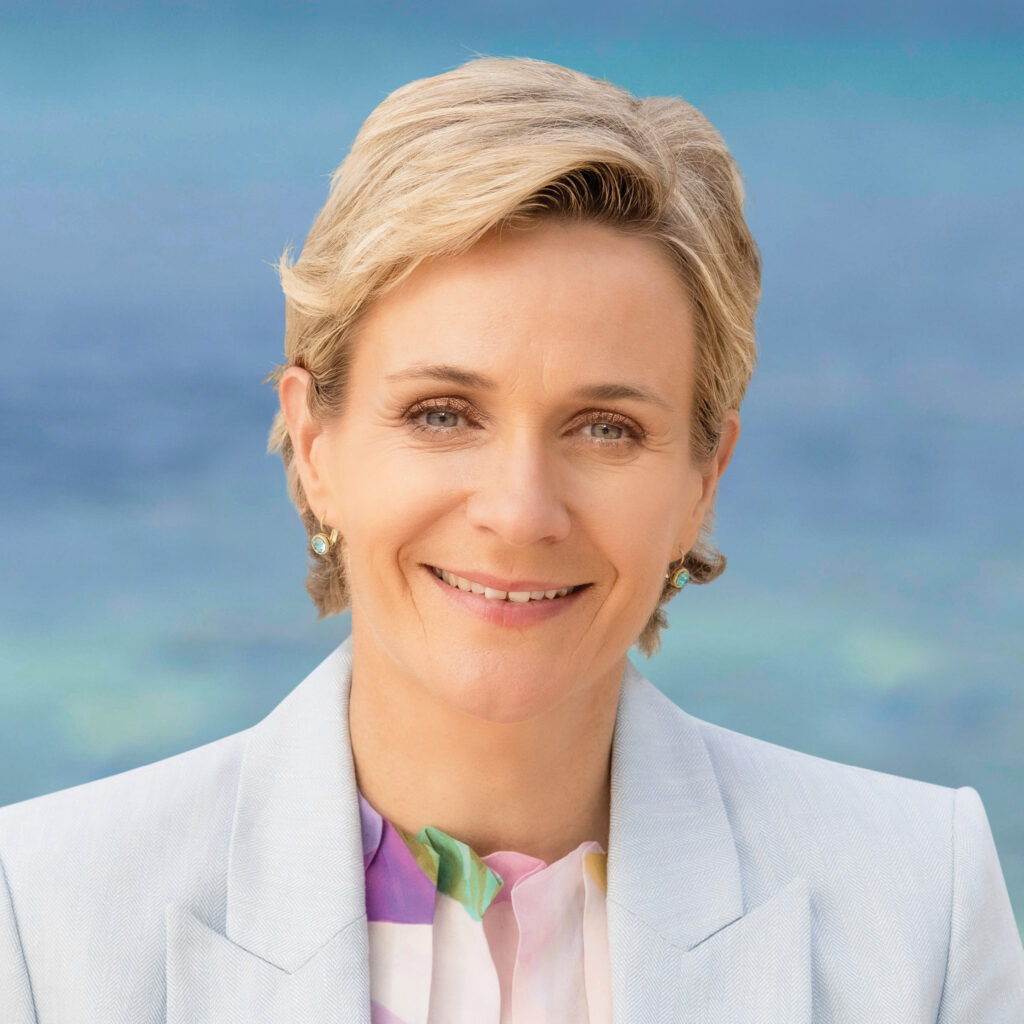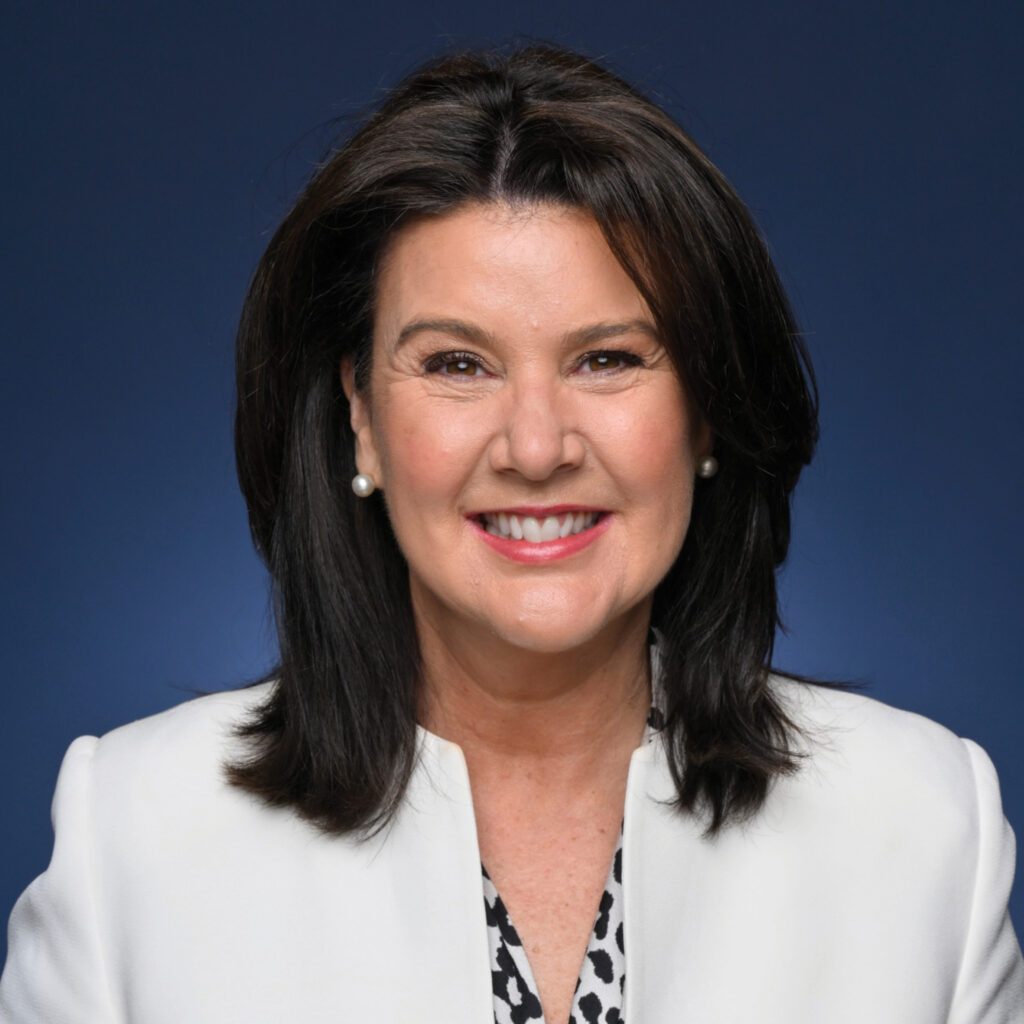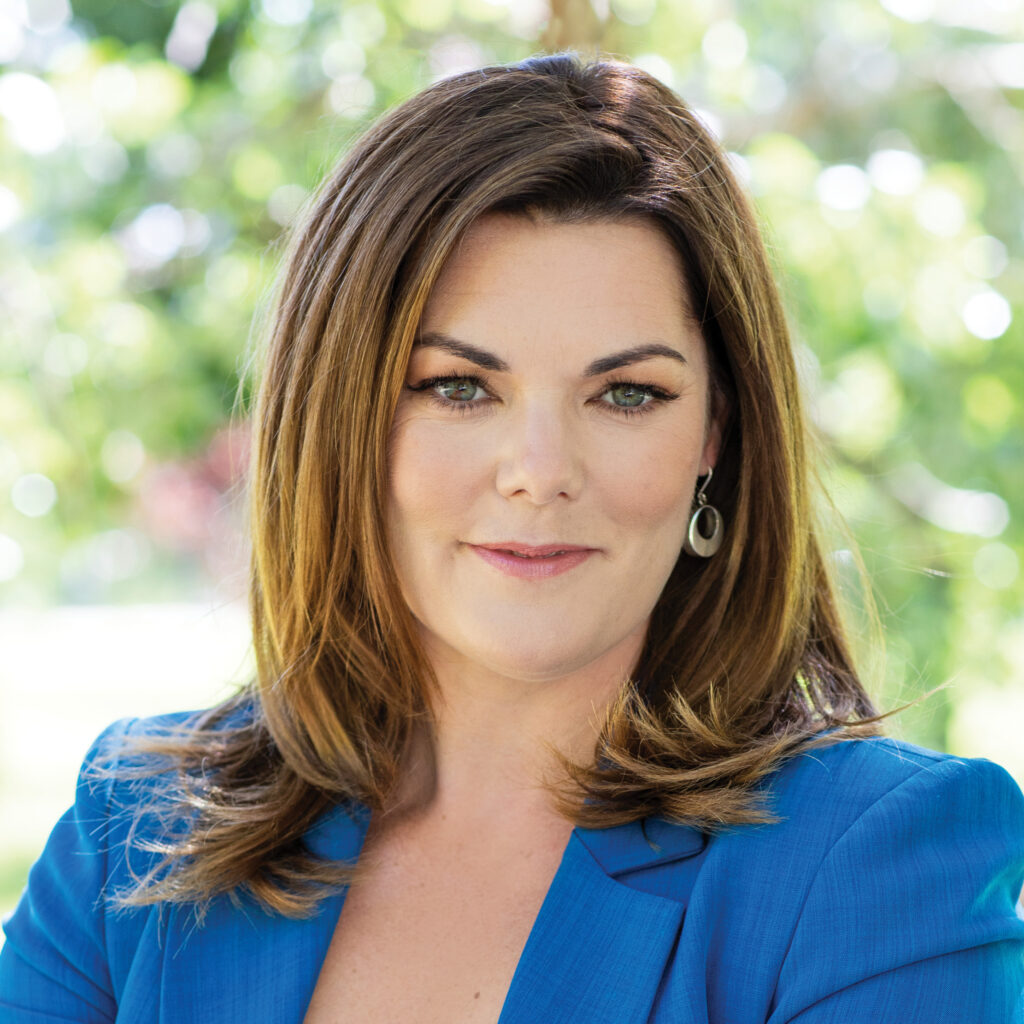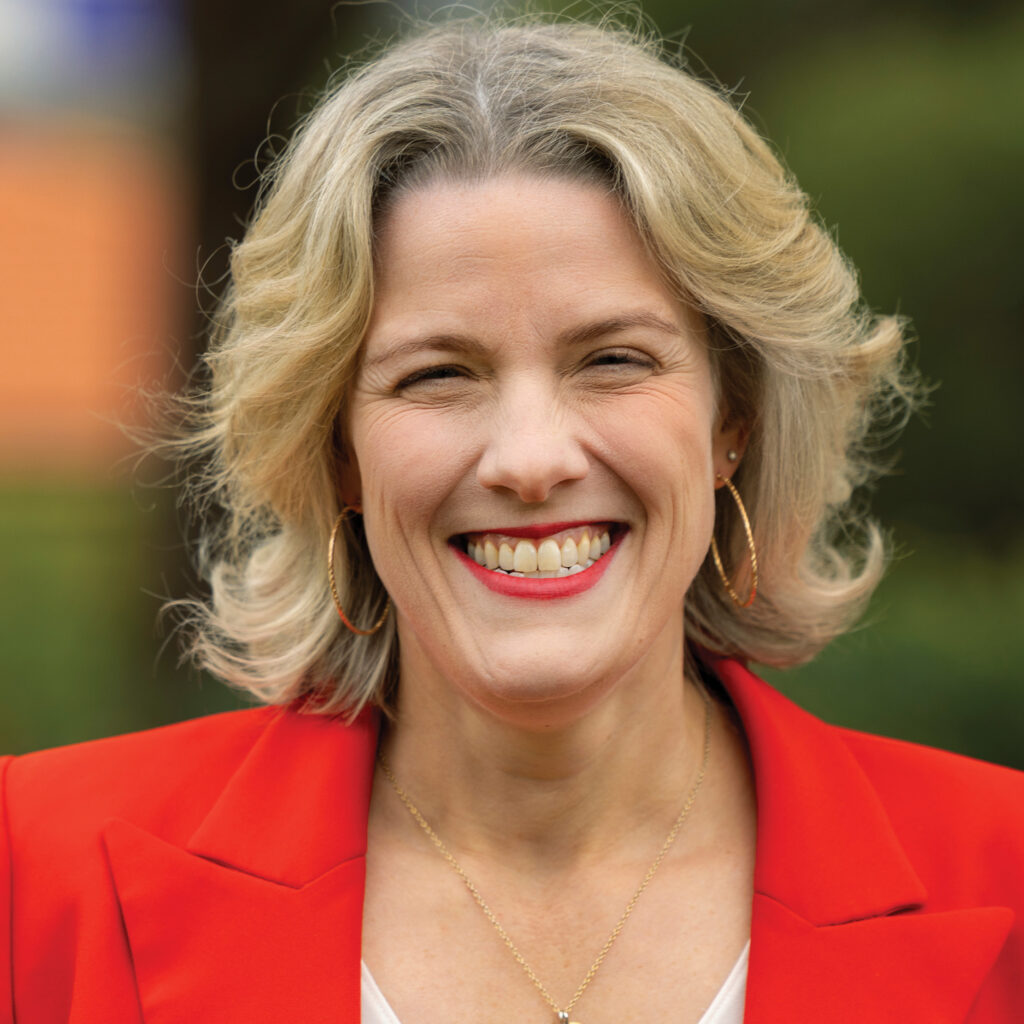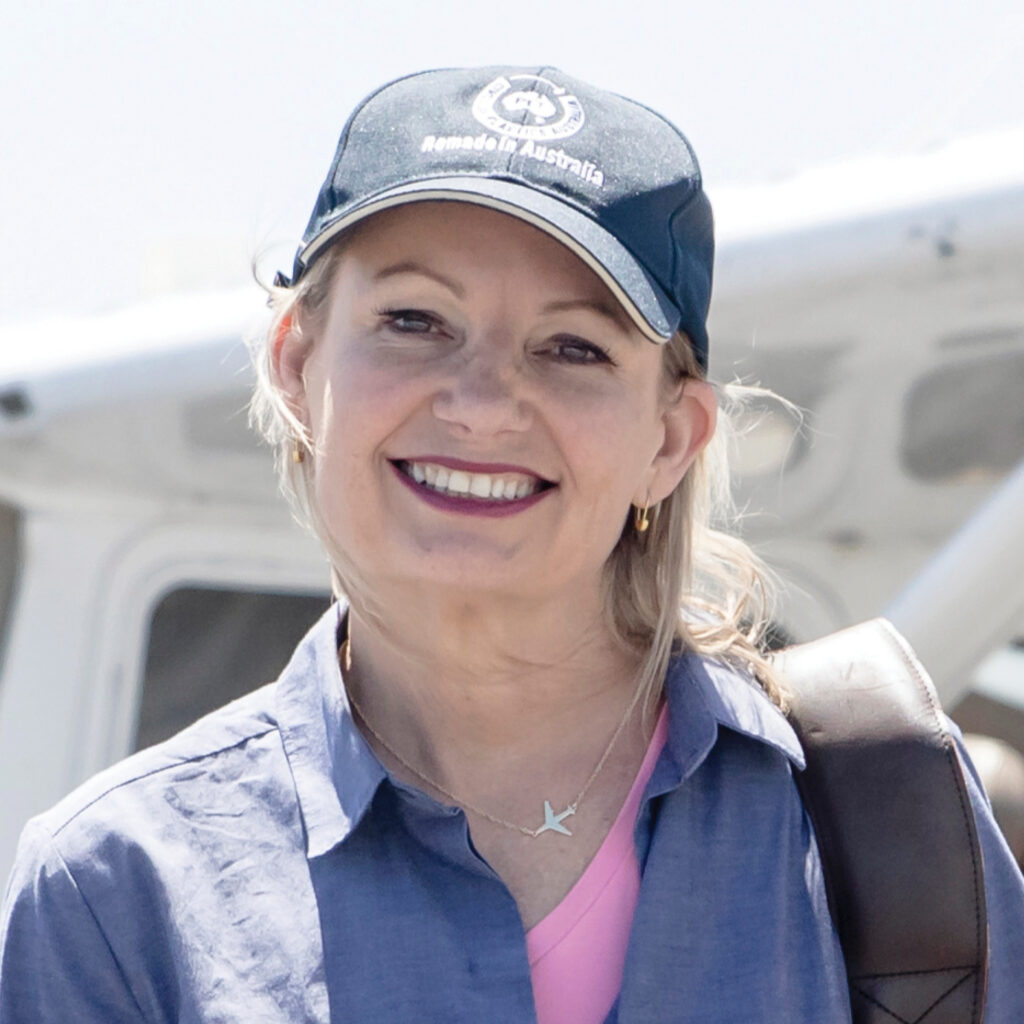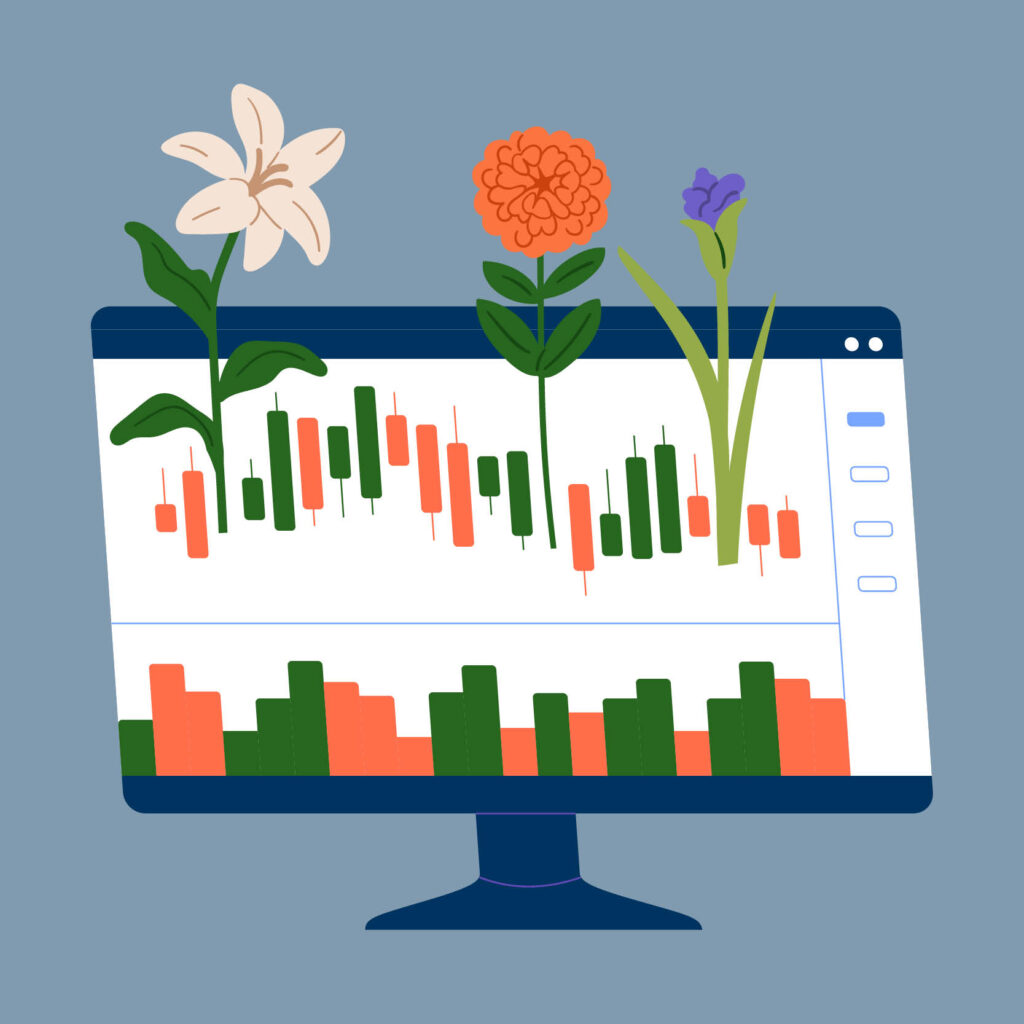Dr Anne Summers: The goals worth fighting for
The celebrated author and leader in Australia's women's movement since the 1970s on the long road to liberation.
By Kate Kachor
The celebrated author and leader in Australia's women's movement since the 1970s on the long road to liberation.
By Kate Kachor
As Dr Anne Summers read from her list, the cacophony of laughter she conjured moments earlier began to fade.
The celebrated author, journalist and leader in Australia’s women’s movement since the 1970s, used her keynote address at the FW Leadership Summit 2024 to focus on the “Then and Now” of the nation’s long road to liberation.
She spoke about how growing up in a family of six children, women were considered invisible.
“You didn’t see women in many places. You saw them at the shops, I went to Catholic schools. So if you had to go to a hospital, you’d see nurses. But basically, that was it,” she told the audience from the Shangri-la Hotel ballroom in Sydney.
“There weren’t women in any of the multitude of jobs you see us doing today. And when we even tried to get into these jobs they weren’t exactly welcomed with open arms.“
This included women in the police force.
“The women had to wear skirts and they had to carry their guns in their handbags,” she said, to a flurry of laughter from the crowd in Sydney.
“So, if you just picture it chasing the bad guy down the street in a skirt, heels and handbag – ‘Where’s my bloody gun?’” So let’s say they weren’t treated very seriously.”
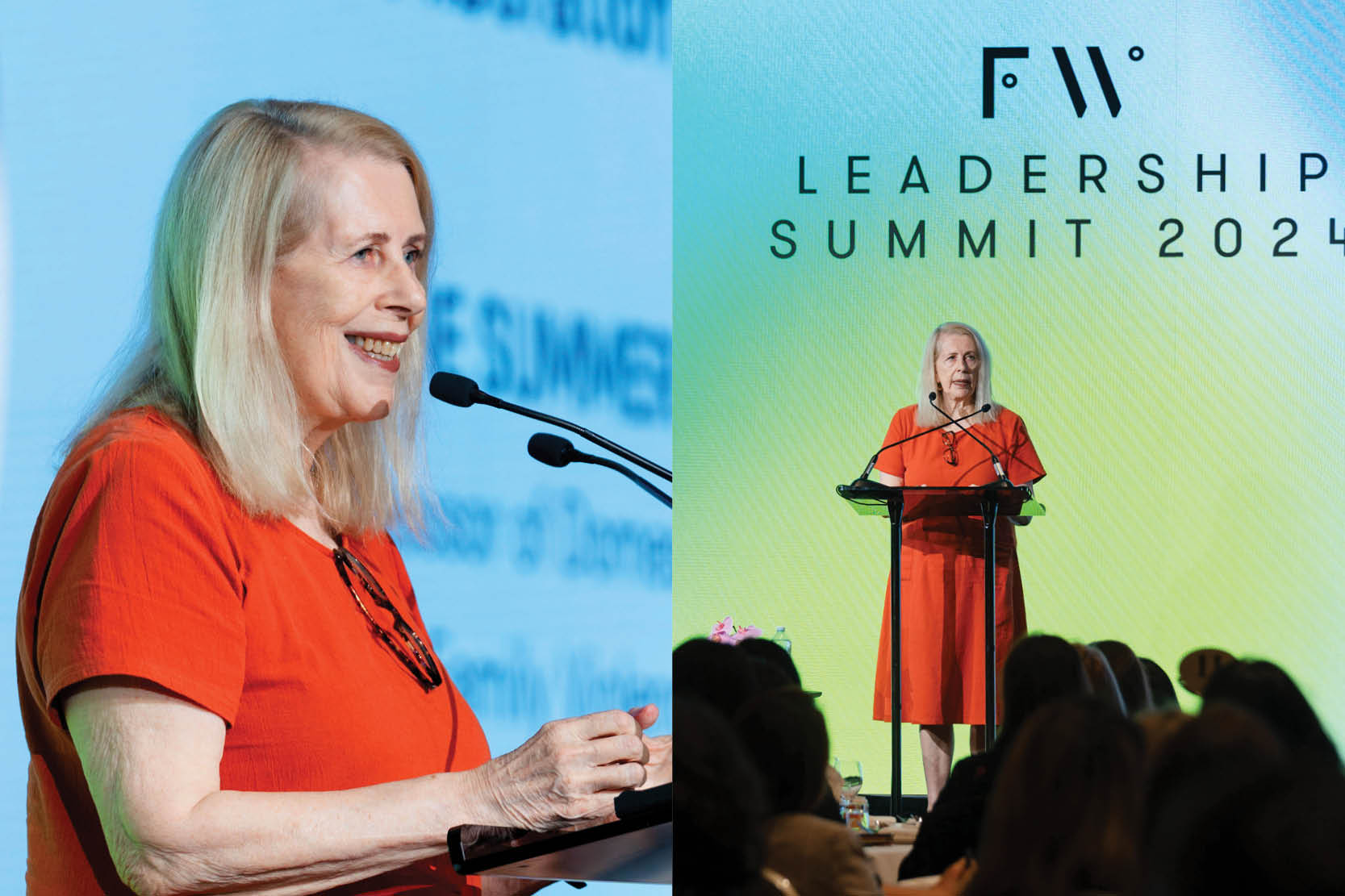
Dr Summers during her keynote at the FW Leadership Summit 2024
As well as being treated as though they were invisible, Summers said women were restricted.
“We were confined, not only in our heads. The etiology of femininity and what women should be was very strong. It really dominated our lives,” she said.
“A certain type of woman was supposed to be confined and was supposed to be dominated by the men in our lives.”
Then, education paths opened for women. Women were going to university and a new generation moved through the ranks who were educated.
“That was creating demands and desires and ambitions and yet all the gates were closed,” she said.
“So that basically is what led to Women’s Liberation as it used to be called then, feminism as we now call it.”
Yet, amid all of the positive changes and opportunities, there was resistance “we didn’t see coming”.
“I remember when I was running the Office of the Status of Women back in the ‘80s there was huge resistance to married women working,” she said.
“We invented it because it was real and a direct result of women going into the workforce and being treated badly by coworkers.”
“The resistance was, and the argument that was put by employers was that married women were taking the jobs of teenage boys. I mean, as if. We had one of the most gender segregated workforces in the universe and there is no way in which married women were going to be taking those jobs. But that was an example of the hostility and then resentment.”
That level of resentment was soon expressed in horrible, crude material terms.
“We had to invent the term ‘sexual harassment’. We didn’t know it before,” Summer said.
“We invented it because it was real and a direct result of women going into the workforce and being treated badly by coworkers.”
She said women who pioneered jobs in blue collar areas had it worse.
“Women who worked at BHP and steel mills in Wollongong and Newcastle, women who worked in the waterboard, women who worked in traditionally male jobs and who had the courage to become pioneers working in those areas were treated shockingly,” she said.
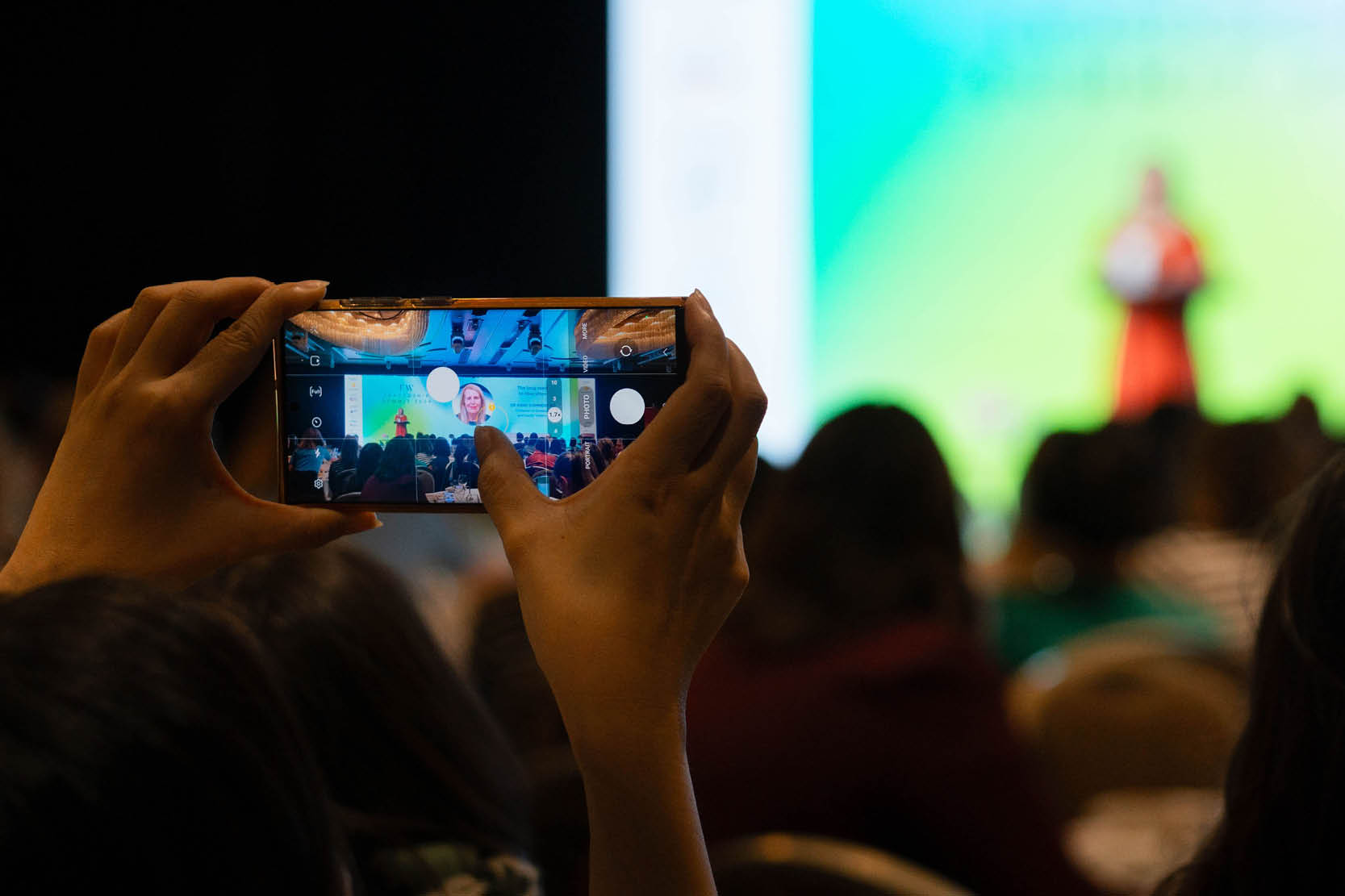
“I mean, that’s the type of physical sexual harassment, barely covers it. There was violence, there was all sorts of horrible things done to them. Those women went to court and they won and these are really significant victories because … we had to fight our way into the workforce.”
It’s a fight that continues today.
“We’re still fighting to get equal pay. I mean, for heaven’s sake, how many years is it going to take?” she said.
“I remember when Gough Whitlam got into power in 1972, and one of his first actions was to intervene in a Federal case supporting equal pay. Well that was 1972. What is it now? 2024 and we still don’t have it”.
In Summer’s view, it’s time for a reset.
“I think we need one that goes back to basics, reminds us of what we started out wanting, what we still want,” she said.
“I think if we are going to have a reset, we have to go back to principles, we have to go back to basics.”
“On Thursday (March 7, 2024), the Minister for Women Senator Katy Gallagher, who is just fabulous, is launching the first government gender equity strategy. So she’s setting out what she thinks will be the terms of creating a society in which women have gender equity.”
Summer takes a moment of pause, before focusing on a list on a piece of paper. On the paper was a list she wrote back in 2017.
“But I actually beat her to it. Seven years ago, I wrote something called The Women’s Manifesto. In that women’s manifesto I outlined what I consider to be the four basic principles of women’s equality,” she said.
“It seemed to me that if we could achieve these four principles we’d be there. We’d be equal, we’d be happy… we’d have less to complain about, let’s put it that way.”
Her four principles centred on financial self-sufficiency, reproductive freedom, freedom from violence and the right to participate fully and equally in all areas of public life.
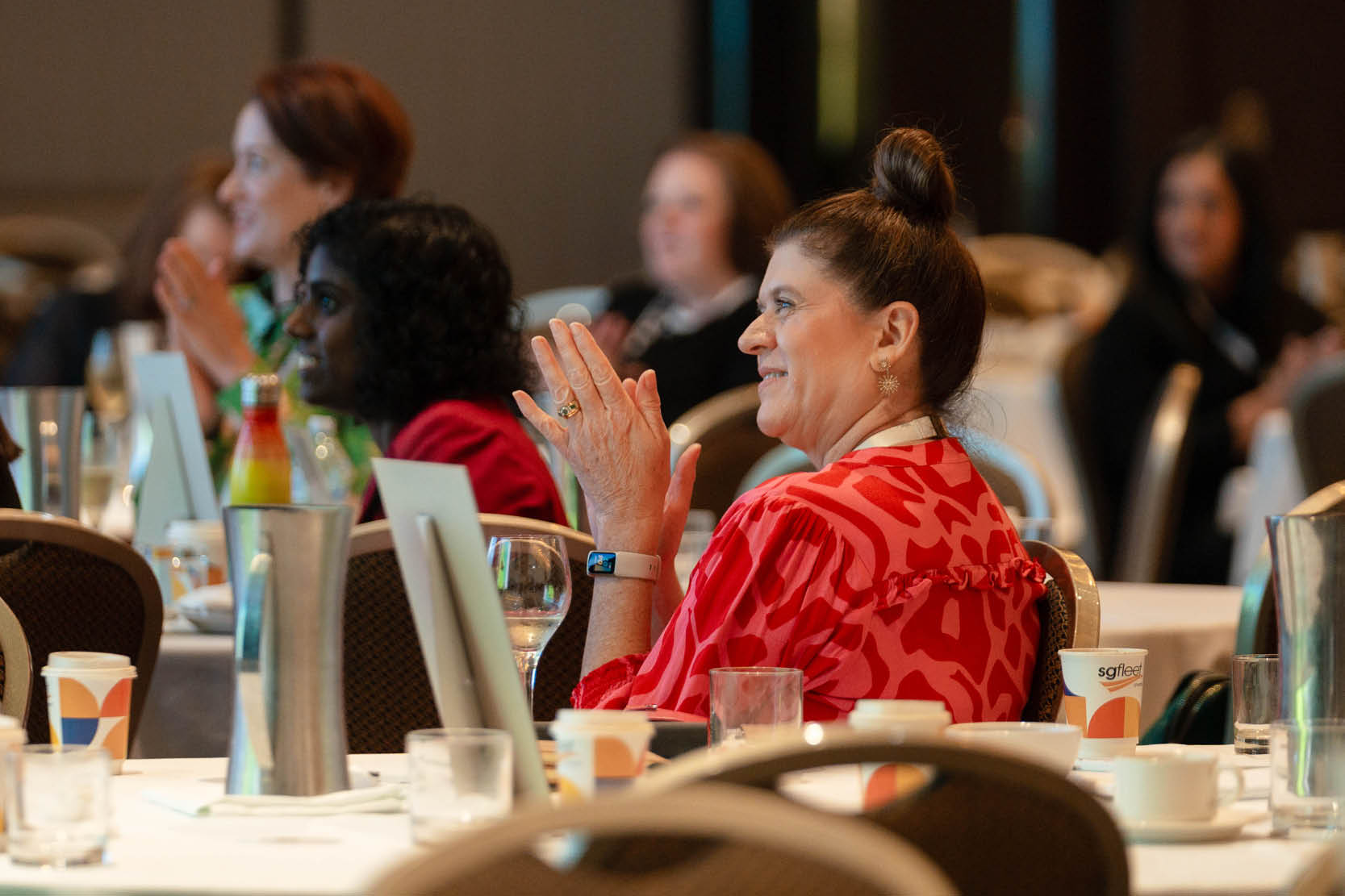
“When I wrote this document, I thought I’m going to set some goals for five years time in order to demonstrate progress towards reaching these principles of quality. So I set out my quality goals by 2022.
“My overall plan for implementing the principles of women’s equality hasn’t gone off to a great start. But I do think it is reviving and worth reviving,” she said.
“I think if we are going to have a reset, we have to go back to principles, we have to go back to basics and have to say, ‘Okay, there’s a lot of things wrong, there are a lot of things that are great’. We’ve achieved a lot, we’re all here, we wouldn’t have been here, we wouldn’t have a conference for women. There are so many wonderful things we are doing and can do.”
Best of FW
Listening to your ego is the best thing you can do for your career
By Jennifer GogginMeet the leaders: Zali Steggall MP
By Odessa BlainMeet the leaders: Senator Jane Hume
By Odessa BlainMeet the leaders: Senator Sarah Hanson-Young
By Odessa BlainMeet the leaders: Clare O’Neil MP
By Odessa BlainMeet the leaders: Sussan Ley MP
By Odessa BlainThe curious connection between food and work
By Zoe Bingley-PullinYour inbox just got smarter
If you’re not a member, sign up to our newsletter to get the best of Future Women in your inbox.


